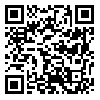Volume 4, Issue 3 (September 2025)
IJER 2025, 4(3): 0-0 |
Back to browse issues page
Download citation:
BibTeX | RIS | EndNote | Medlars | ProCite | Reference Manager | RefWorks
Send citation to:



BibTeX | RIS | EndNote | Medlars | ProCite | Reference Manager | RefWorks
Send citation to:
Salehi M, Sajadieh N S, Javadipour M. (2025). Pathology of the Implemented Curriculum of Islamic Education Courses in the Elementary Education Program of Teacher Training in Iran. IJER. 4(3),
URL: http://ijer.hormozgan.ac.ir/article-1-246-en.html
URL: http://ijer.hormozgan.ac.ir/article-1-246-en.html
1- MA in Curriculum Planning, University of Tehran, Tehran, Iran , majid.salehi1370@gmail.com
2- Associate Professor, Department of Philosophical and Social Foundations of Education, University of Tehran, Tehran, Iran
3- Associate Professor, Department of Methods and Curriculum Programs, University of Tehran, Tehran, Iran
2- Associate Professor, Department of Philosophical and Social Foundations of Education, University of Tehran, Tehran, Iran
3- Associate Professor, Department of Methods and Curriculum Programs, University of Tehran, Tehran, Iran
Abstract: (738 Views)
Objective: The present study aimed to investigate the pathology of the implemented curriculum of Islamic Education courses in the elementary education program at Farhangian University.
Methods: This qualitative research employed a phenomenological approach. The participants consisted of 10 graduates and student teachers of the program, selected through purposive sampling. Data were collected via semi-structured interviews and analyzed using Colaizzi's seven-step strategy.
Results: The analysis of participants’ lived experiences and perceptions yielded five main themes and sixteen sub-themes. Findings revealed that the implemented curriculum suffers from significant weaknesses in five dimensions: teaching-learning processes, academic level of professors, implemented content, evaluation methods, and learner-related factors.
Conclusions: The results suggest that improving professors’ attitudes toward classroom management, fostering an environment for idea exchange, emphasizing the active role of student teachers, and revising faculty recruitment policies are essential strategies to reduce the weaknesses of the current curriculum.
Methods: This qualitative research employed a phenomenological approach. The participants consisted of 10 graduates and student teachers of the program, selected through purposive sampling. Data were collected via semi-structured interviews and analyzed using Colaizzi's seven-step strategy.
Results: The analysis of participants’ lived experiences and perceptions yielded five main themes and sixteen sub-themes. Findings revealed that the implemented curriculum suffers from significant weaknesses in five dimensions: teaching-learning processes, academic level of professors, implemented content, evaluation methods, and learner-related factors.
Conclusions: The results suggest that improving professors’ attitudes toward classroom management, fostering an environment for idea exchange, emphasizing the active role of student teachers, and revising faculty recruitment policies are essential strategies to reduce the weaknesses of the current curriculum.
Type of Study: Original |
Subject:
Educational Studies
Received: 2024/07/21 | Accepted: 2025/06/3 | Published: 2025/09/1
Received: 2024/07/21 | Accepted: 2025/06/3 | Published: 2025/09/1
Send email to the article author
| Rights and permissions | |
 |
This work is licensed under the Creative Commons - Attribution 4.0 International. |






